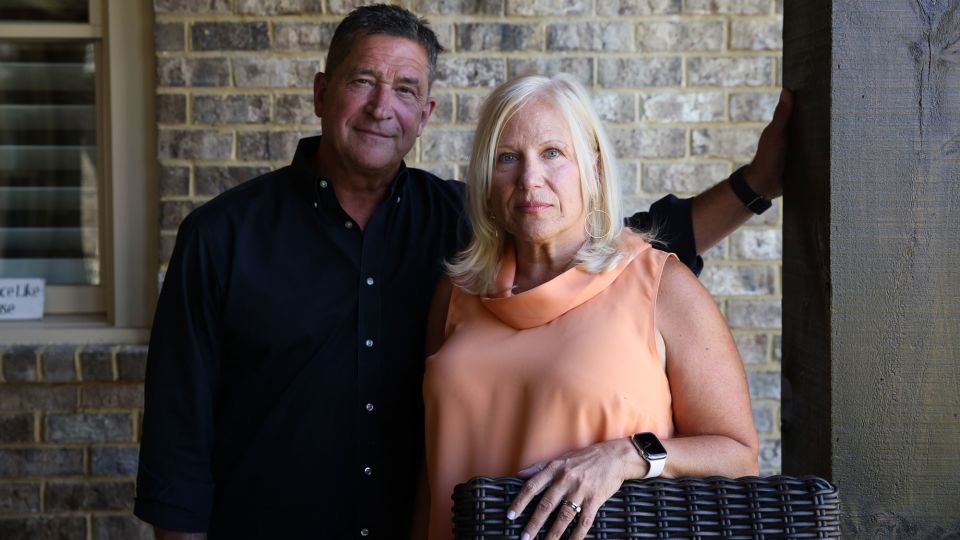The narrative begins with 17-year-old Greg McDonald Jr., who realizes his parents are waiting for him with concern after he returns from a summer boat trip with friends. Unknown to him, his conservative Christian father, Greg Sr., had discovered his son’s visits to gay porn sites, which would trigger an intense family crisis when Greg Jr. came out as gay. Instead of facing condemnation directly from his community, Greg Jr.’s admission unleashed a tumultuous journey for his parents, forcing Greg Sr. and Lynn McDonald to confront their beliefs and the impact of their faith on their family. Their struggle against a backdrop of silence regarding LGBTQ+ acceptance within conservative Christianity reflected the larger hidden crisis present in many such families, where rejection and shame often replace love and acceptance.
The McDonald family was typical of conservative Christian households, actively participating in religious activities and valuing traditional values. Yet their views were tested when their son came out. Despite societal progress concerning LGBTQ+ rights, conservative religious families like the McDonalds still faced pressure to conform to outdated doctrines, leading to reactions steeped in fear and misunderstanding of homosexuality. The emotional turmoil within their family was compounded by Greg Jr.’s fear of rejection and the prospect that being gay might lead to his disownment. Thus began a painful dynamic of effort to “fix” their son instead of embracing him, showcasing how deep-rooted beliefs can complicate familial love.
Broaching the topic of Greg Jr.’s sexuality prompted his parents to engage in discredited practices like conversion therapy, which only alienated their son further. As Greg Jr. distanced himself and avoided conversations rooted in scripture with his parents, the strain also suffused the marriage of Greg Sr. and Lynn. Caught between the pressures of their faith and the desire to love their child, the couple grappled with feelings of guilt, confusion, and blame, viewing Greg Jr. as a failure of parenting. This societal narrative pushed them into isolation, exacerbated by the lack of support from their church, where seeking help for LGBTQ+ issues remained taboo.
A pivotal moment for the McDonald family came when Lynn was diagnosed with breast cancer. As Greg Jr. moved to Chicago and became a source of emotional support, the dynamic of their relationship began to shift. Lynn’s illness prompted her to reflect on the years they spent raising Greg Jr. in an environment of conditional love and fear. Meanwhile, Greg Jr. demonstrated grace and compassion, challenging his mother’s beliefs and forcing a re-evaluation of their relationship. This growing bond tore down longstanding barriers built around shame and misunderstanding, allowing the McDonalds to engage in a more authentic dialogue, even as they remained conflicted around their faith.
As time passed, both Greg Sr. and Lynn started to question their previous convictions. Greg Sr. found solace in confronting the complicated relationship between his beliefs and his love for his son by engaging with new theological perspectives. He discovered authors who challenged conventional interpretations of biblical scripture regarding homosexuality. By focusing on Christ’s teachings about love and acceptance, he began to forge a new understanding of faith that included his son as an integral part of his life, leading to a more inclusive approach to Christianity that opposed the traditional dogma they had adhered to for years.
Through their evolving perspective, the McDonald family began to embrace their journey publicly, creating “Embracing the Journey,” a support group for Christian parents of LGBTQ+ children. Their vulnerability in sharing their experiences opened doors to healing discussions not only within their family but also among others facing similar challenges. In facing backlash for their newfound beliefs, they held onto their commitment to unconditional love, even as they lost friends. This advocacy work has resonated with a wider community, allowing them to connect with families around the globe, crafting a new narrative within the conservative Christian framework that places love above dogma.
Today, Greg Jr. is married, living alongside his supportive parents in a new reality that celebrates love over judgment. The McDonald family, having shed their shame, now teaches acceptance and understanding to others, exemplifying the belief that unconditional love is not just compatible with Christianity but may indeed be its purest expression. Their journey stands as a narrative of transformation, demonstrating that sometimes the true answer to prayer is not change for the other but change within ourselves.

